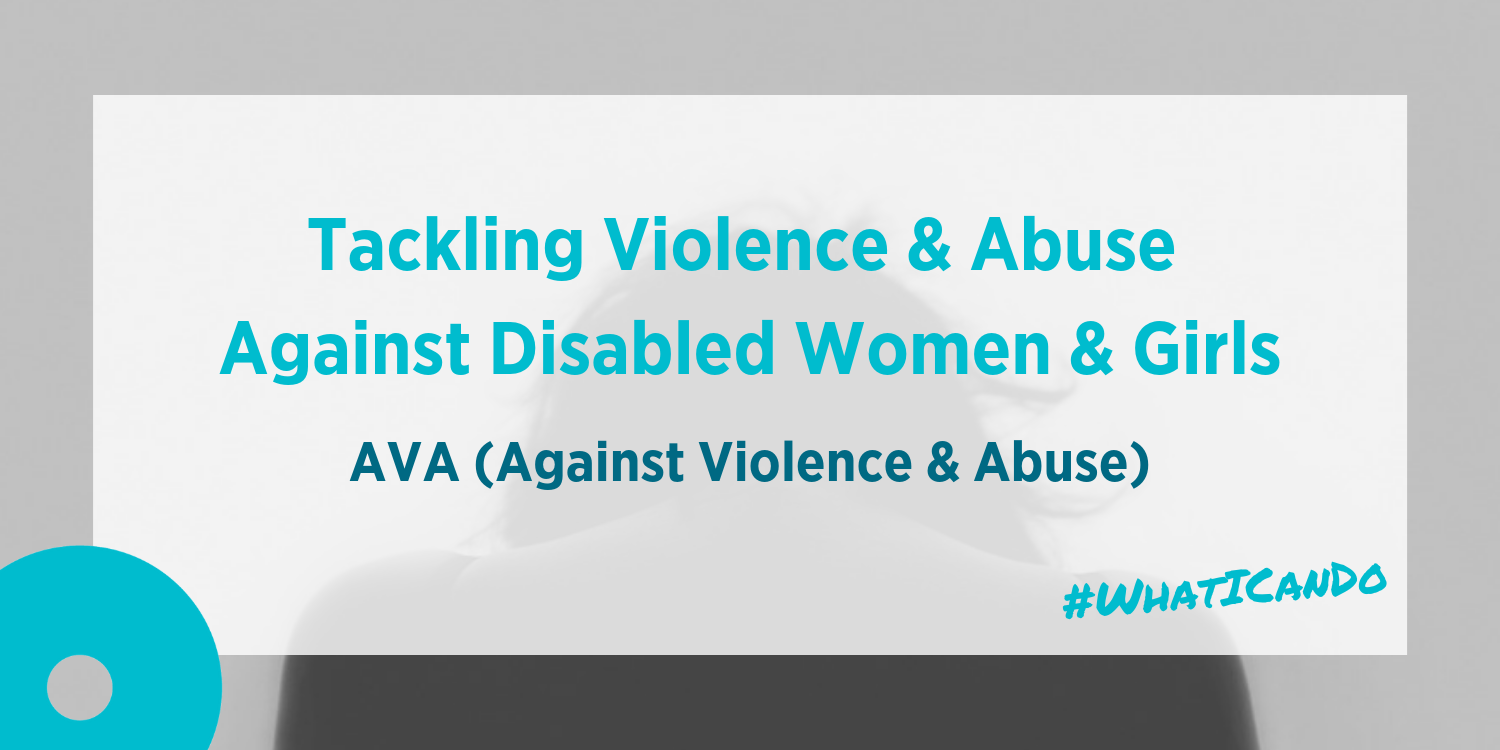Written by Ruth Atkinson, Project Manager, AVA (Against Violence & Abuse)
Women living with disability are twice as likely to suffer abuse than non-disabled women. They also generally suffer abuse for longer periods of time. Whether or not this comes as a surprise, these facts are pretty disturbing. And yet, this reality is often missed from conversations and thinking around women’s experiences in the VAWG (Violence Against Women & Girls) sector.
In light of this, we at AVA (Against Violence & Abuse) have been focusing our attention on raising awareness about disability & abuse for the #16Days of Activism Against Gender-Based Violence 2018. On 28th November, we held a day-long seminar event: Tackling Violence & Abuse Against Disabled Women & Girls. The event was funded by London Councils and Drill, with speakers Donna Covey CBE (Chief Executive, AVA), Ruth Bashall (Executive Director, Stay Safe East), Susie Balderson (Policy & Training Director, Vision Sense) and Vicki Trapps (IDVA, Deaf Hope by Sign Health).
Speakers shared some of the specific ways in which abuse against disabled women plays out. For example, we know more generally that perpetrators often use their victim’s circumstances, life experiences and characteristics to coerce, control and terrorise. This is no different for disabled women, whose abusers are also highly likely to use their disability against them in order to make their lives more unpleasant.
The speakers also highlighted the fact that many additional barriers are faced by disabled women when attempting to access vital services. One instance of this was when Vicki Trapps discussed the fact that deaf survivors often struggle to disclose abuse to the relevant authorities, because interpreters are rarely available, and even when they are, there may still be issues such as long wait periods or lack of assistance for women who do not use British Sign Language.
Tragically, many of those survivors who do manage to disclose abuse are not believed or their experiences are dismissed. For disabled women, this is an even greater challenge. Data collected for the Drill project exploring disabled survivors experiences, for example, evidences professionals dismissing and minimising disabled women’s experiences in the light of their disability, responding to disclosure as if disabled women are actually ‘better off’ with their abusive partner or carer than without their abusers ‘care’. Women’s experiences were also quite often viewed as a relationship breakdown rather than as abuse.

An underlying theme in the information presented by the speakers was a critical need to challenge perceptions around women living with disability – perceptions that pose huge barriers and which are informing multi-agency responses to disabled women’s experiences of violence and abuse. Ruth Bashall called for the adoption of a social model of disability – an approach developed by disabled people that states they are not disabled by their difference, but by societies which fail to accommodate these differences. For services and agencies on the ground, this means placing disabled women at the center of service development, service delivery, and policy considerations. It is also critical to challenge the common perception that disabled women do not have sex and/or could not be in romantic relationships. If we can’t understand that disabled women have relationships, how we can understand, identify or respond to the fact that they might be in abusive relationships?
Finally, understandings of safety and risk were challenged – notably when women are moved away from their perpetrator and into an institutional setting. As Susie Balderson stated, putting disabled people into institutional settings is not only an act of segregation, but disabled people are not actually safer in these environments.
So.. what can we do to improve responses to violence against disabled women and girls?
The first step is to take the time to listen to women’s experiences and understand the intersectional inequalities faced by disabled women. The conversation must be continued to ensure greater awareness of disabled women’s experiences, and to be certain that women are being heard. For those delivering services, this conversation should include thinking around how to make resources, information and services more accessible – making sure that service users and disabled women at the center of this process – and embedding flexible work practice across the serivce.
Finally, we must also collectively challenge the problematic perceptions around disability that are posing additional barriers to disabled women, and are influencing the ways in which people are responding to women’s experiences of abuse.
The full findings from the Drill project will be published in the new year.
For links to the full presentations, check out AVA’s blog here.
Find out more about AVA here, or follow them on Twitter, Facebook and Instagram.
Learn more about our partnership with AVA here.


